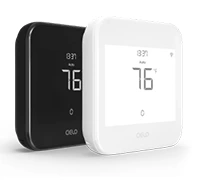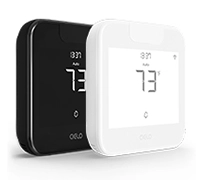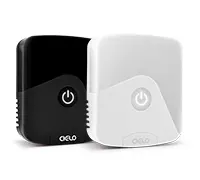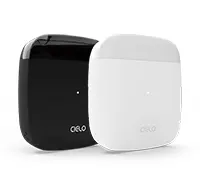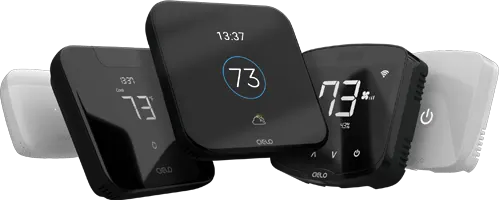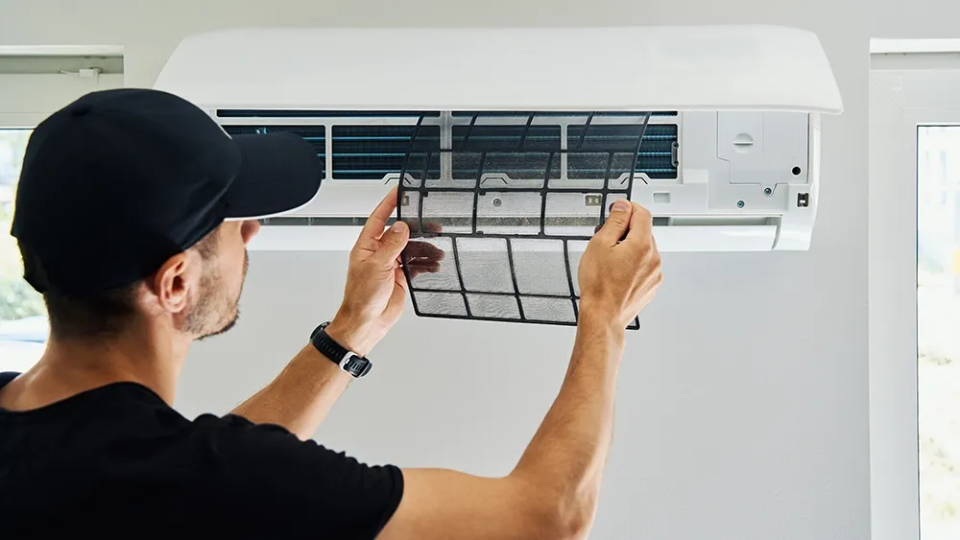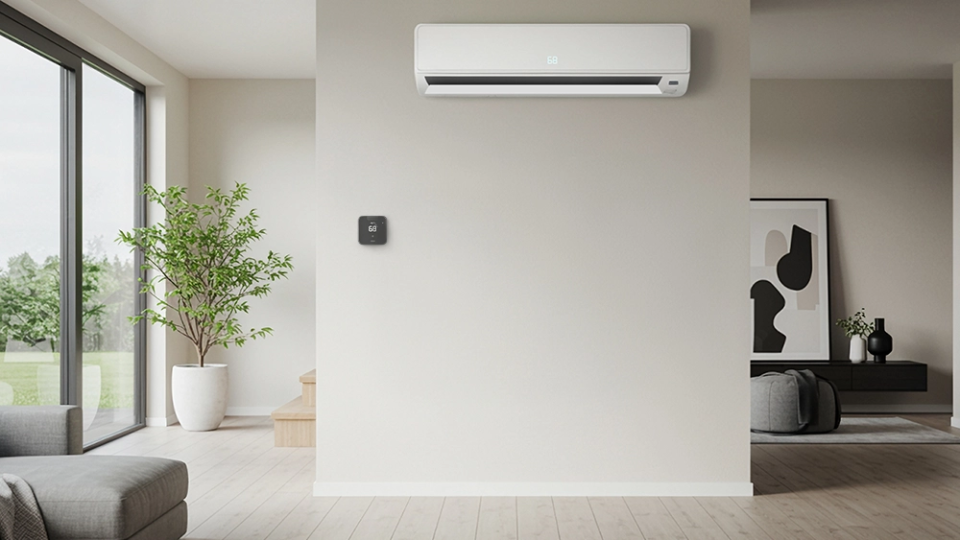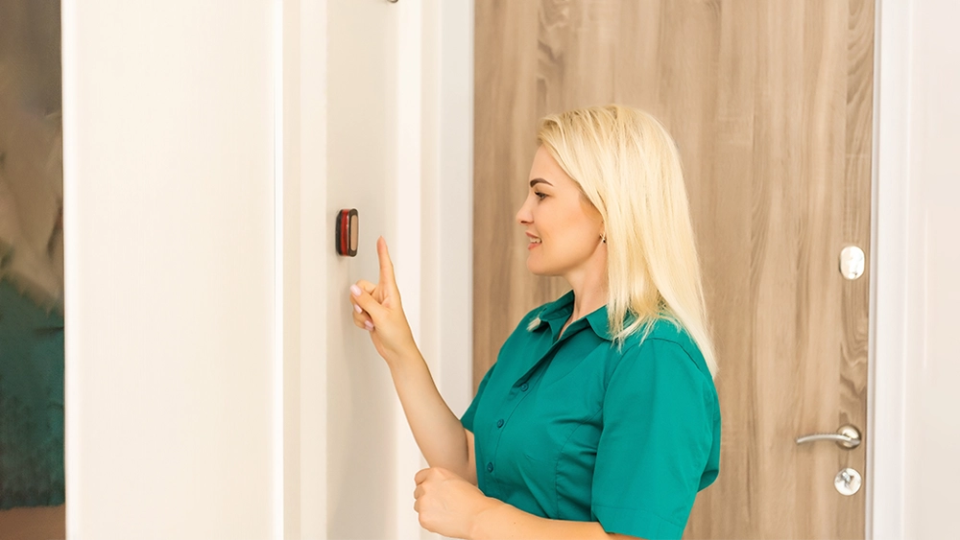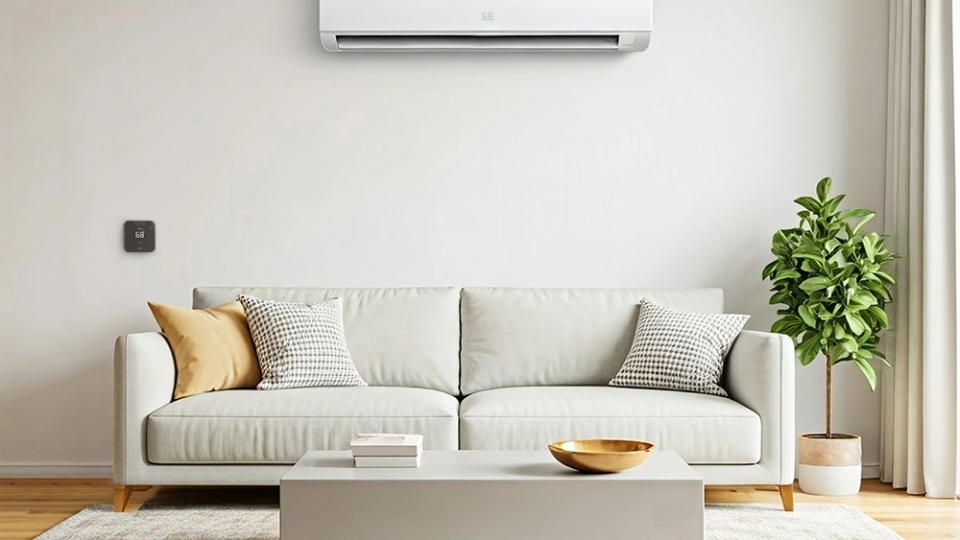
Key Takeaways
- The recommended humidity level during summer is between 30% and 50%.
- You can manage summer humidity by using dehumidifiers, running exhaust fans, and improving ventilation.
- Excess moisture can lead to fatigue, increased allergy symptoms, and mold growth.
Ever walk into your home on a hot summer day and feel like it’s way warmer than the actual temperature? You’re not alone. The real culprit behind that sticky, uncomfortable feeling is often humidity, not just the temperature itself.
During the summer season, humidity levels are high because warm air can retain more moisture than cold air. High humidity doesn’t just impact comfort; it can also contribute to mold growth, musty smells, and even trigger allergies.
So, what’s the key to staying cool and comfortable? This guide explains why summer humidity feels so intense and provides practical tips to help you regain control of your indoor climate.
Ideal Indoor Humidity for Summer
The Environmental Protection Agency (EPA) recommends maintaining indoor humidity levels between 30% and 50%. Staying in this range helps limit dust mites, slows mold growth, and makes your whole house feel more comfortable and fresh.
The exact level of moisture in the air is heavily affected by the outdoor temperature. To determine the exact number you need to maintain inside your home, refer to this article and take a look at the ideal indoor humidity chart. When the outdoor temperature is above 50°F, the indoor humidity should be maintained at a maximum of 50%. For temperatures between 25-50 degrees, a 40% level is the maximum acceptable level.
Why Humidity Matters for Your Comfort and Health
Humidity plays a significant role in your everyday life than you might realize, affecting your comfort, your health, and even your home.
In a humid environment, the process of evaporation slows down. The warm moisture stays on your body for longer, and you feel hotter. The phenomenon is referred to as the heat index in terms of meteorology.
The heat index is often commonly known as the real-feel or apparent temperature. It combines air temperature and relative humidity to give a human-perceived equivalent temperature. Assume the temperature as indicated by your thermostat is 96°F, and the humidity is 65%. Then the heat index, or what your body would feel, would be121°FF.
According to the National Weather Service, as the heat index rises above 90°F, the risk of heat-related illnesses increases, particularly for individuals with respiratory or cardiovascular conditions. Even healthy individuals may experience fatigue, dehydration, or sleep disturbances when exposed to high indoor humidity for prolonged periods.
Impact of High Humidity in Summer

Below are some of the most common effects of high humidity in summer.
-
Mold Growth
The wet and warm environment offers ideal conditions for mold and mildew growth. Having excess moisture in the air stimulates the growth of mold spores, which can thrive on walls, ceilings, and HVAC ducts. Mold can lead to respiratory diseases, headaches, or skin reactions, especially in individuals with weakened immune systems or those with asthma.
-
Condensation on Walls & Windows
When moist air comes into contact with cold surfaces, such as glass windows, metallic attachments, or painted indoor walls, the humid air starts to condense. This indicates that the air is already holding more moisture than it should. Beyond a relative humidity limit, this type of condensation can lead to peeling paint, drywall deterioration, and, worst of all, structural rot.
-
Increased Allergy and Asthma Symptoms
Humid conditions facilitate the growth of common allergens, such as mold and dust mites, which negatively impact indoor air quality. Individuals with pre-existing allergies or a history of allergies are at a higher risk. Wheezing, sneezing, and tightness of breath are worsened in humid environments.
-
Musty Smell Indoors
Frequent damp or musty smells around the house are often attributed to the presence of moisture trapped within the premises. Excessive humidity causes furniture, carpets, and curtains to develop mold.
-
Excessive Sweating and Overheating
With high humidity, sweat fails to evaporate, thus interrupting the natural body cooling mechanism. The overheating can cause people to sweat even more, which, in turn, leads to discomfort, fatigue, and restlessness.
9 Tips to Maintain or Reduce Indoor Humidity During Summer

Here are the top tips to help you reduce high humidity levels inside your home:
1. Use a Dehumidifier
A dehumidifier is a device used to remove moisture from the air inside your home. You can invest in a portable dehumidifier and place it anywhere to bring down humidity levels. If you live in a highly humid area and need a solution for your entire home, consider opting for a whole-house dehumidifier.
Pro Tip: For large homes or areas with consistently damp conditions, a whole-house dehumidifier is more efficient than running multiple small units.
While air conditioners can also dehumidify the air, dehumidifiers are particularly essential if you experience extremely high humidity in the summer.
Modern dehumidifiers are smart, allowing you to control them from anywhere using your phone. You can also view and set home humidity levels using your phone and receive notifications when the water bucket needs to be changed. You can also control them from smart home systems such as Google Assistant or Alexa.
2. Use Smart Thermostats
While a basic digital hygrometer can measure humidity, a smart thermostat offers much more convenience. Many smart thermostats for central HVAC and smart thermostats for ductless systems feature built-in humidity sensors. They allow you to track your home’s humidity levels using your phone and also offer various features to enhance your comfort.
Equip your HVAC system with smart features and achieve the perfect balance between comfort & savings.
Learn more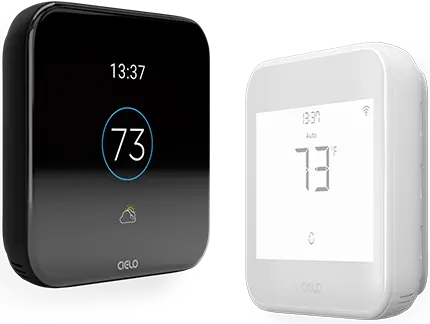
For instance, with Cielo Breez Max, a mini-split thermostat, you can set intelligent humidity triggers to maintain ideal levels. You simply need to set your preferred humidity range and determine what the AC should do if it exceeds or falls below that range. Then sit back and relax while it maintains your ideal indoor humidity during summer.
Your best choice to make any mini-split, window,
or portable AC smart. Enhance your comfort and savings.
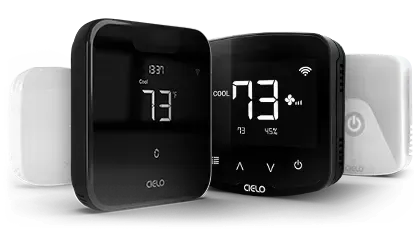
3. Run Exhaust Fans in Kitchen and Bathroom
Exhaust fans help to maintain optimal humidity levels. They are mostly installed in the bathroom and kitchen, as the moisture is usually high in these areas. The vapors added to the air from cooking, boiling water, or showers can be effectively removed by running exhaust fans.
Pro Tip: Leave the fan running for 15–20 minutes after you finish cooking or taking a shower to remove excess moisture.
4. Take Cold Showers
Although hot showers are incredibly soothing after a long, tiring day, the steam buildup can, unfortunately, increase the humidity inside your home. Try to lower the heat and take cold showers whenever possible. In summer, cold showers can be really refreshing and can help you cool down.
5. Avoid Boiling Water
Boiling water for cooking releases a significant amount of steam into your kitchen, which can quickly increase your indoor humidity levels, especially when the weather is already muggy. On days with high humidity, try to avoid boiling large pots of water for tasks like cooking pasta or vegetables. Even short bursts of boiling water can spike your kitchen’s humidity by several percentage points if there’s not enough ventilation.
If you do need to boil water, always use your kitchen exhaust fan or open a window to vent the steam outside. Keeping extra moisture out of the air will help your home feel cooler and prevent problems like condensation and mold.
6. Add Moisture-Absorbing Plants
Some houseplants naturally absorb moisture from the air, helping lower indoor humidity while adding a fresh, green touch to your home decor. Plants like English ivy, Boston fern, and Spider plant are especially good at pulling water vapor through their leaves, acting as natural dehumidifiers.
Pro Tip: Not all plants reduce humidity; some actually release moisture. Always choose varieties known for their moisture-absorbing abilities.
7. Open Windows for Ventilation
Opening your windows is one of the simplest ways to lower indoor humidity and improve air circulation. Allowing fresh air to enter can help balance moisture levels inside your home and reduce that sticky, uncomfortable feeling.
Pro Tip: Always check the outdoor humidity before opening windows. Ventilate when the outside air is drier than your indoor air for optimal results.
8. Clean Air Filters
Regularly clean and replace your AC filters. Clean filters ensure your unit is working in optimal condition. It also supports the system’s ability to remove excess moisture from the air, helping to maintain a balanced indoor humidity level.
9. Dry Clothes Outside
Hang your clothes outside to dry rather than inside your home. This prevents the moisture from releasing indoors and raising humidity levels.
Maintain Ideal Humidity Levels for a Healthier Home
Ideal humidity levels for summer are between 30% and 50%. This range helps you stay comfortable, prevent mold growth, and protect your home’s structure and furniture. You can use a dehumidifier, ensure proper ventilation, and run exhaust fans to improve humidity levels during summer.
Frequently Asked Questions
Why Does My House Feel Damp in the Summer Even With the AC On?
Your home may feel humid with the AC on due to a number of reasons:
- You haven’t cleaned your AC filter and coils in a while. Dirty AC components lead to decreased performance.
- If the humidity levels are too high, it can be a challenge for the system to keep up. You will require a dehumidifier in that scenario.
- Lack of ventilation traps moisture indoors. Ensure your home has good ventilation to help regulate humidity levels.
- An AC that’s too large will short cycle, cooling the room quickly without running long enough to remove humidity effectively. On the other hand, an undersized AC will struggle to cool and dehumidify properly. Here’s a detailed guide on AC sizing.
Can High Summer Humidity Damage the House Over Time?
The lingering humidity during the summer is not only an annoyance that triggers sweating, but it may also seep into the very walls of the home itself. Excessive periods of moisture in the air can cause wooden floors or furniture to swell or warp. At the same time, some signs to note include peeling paint, condensation, or wet spots on internal walls.
What Humidity Does Mold Grow In?
Mold grows in environments where humidity exceeds 60%. This level provides ideal conditions for mold spores to grow, germinate, and spread rapidly.
